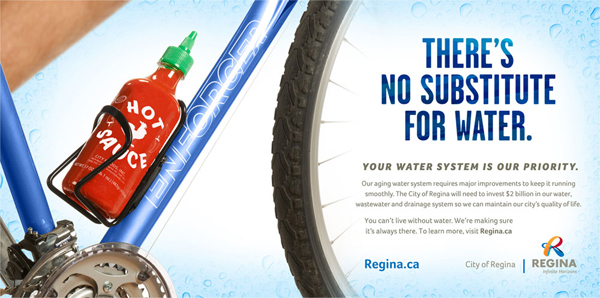REGINA – It appears a referendum on the City of Regina’s proposed waste water treatment plant could take place, after some last-minute trickery by the city was shot down by the province.
A group called the Regina Water Watch has been working overtime the past few months to get the required amount of signatures to push for a public vote on the waste water treatment plant. Their issue is the fact the plant is being built using a Private-Public Partnership (P3) model, which is expected to cost $224 million and be completed by 2016.
[related_content slugs=”reginas-bricks-and-mortar-heritage-at-risk,sanctuary-university-of-regina-international-students-avoiding-deportation-in-church-basement,regina-to-extend-city-borders-into-rural-municipality” description=”More from Jason Antonio” position=”right”]
The group, which is also backed and assisted by the Canadian Union of Public Employees, believes the waste water treatment plant should fully remain in public hands and not be operated by a private firm. The group also believes the project can be done for much less money if the city builds the plant itself, although the city denies this and says it would cost more if done solo.
Regina Water Watch needed to acquire 19,310 signatures – or about 20 per cent of the city’s population – on its petition to force a referendum, which would have to take place within nine months of the petition being found valid. However, at the 11th hour – the day before June 20 when the petition was due – the city attempted to make that task more difficult by asking the provincial government to increase the number of names needed to 20,742.
The city argued the number of names needed should be based not on the 2011 census population estimate, but instead on the current number of health card holders in the city, which is 207,429.
This means the Regina Water Watch would have needed to acquire roughly 1,500 names within one day just to meet the deadline. But the provincial minister who was approached turned down the city’s request and said it would “not be a proper exercise of [his] discretion.”
What’s interesting to note here is the fact more people are concerned about the ownership of Regina’s waste water treatment plant than are concerned about the proposed new football stadium.
Last summer another group put forward a petition asking for a referendum to be held on the stadium. The group even camped out at a Saskatchewan Roughriders’ football game to garner names on their petition.
But that group attained less than 10,000 signatures, which meant their petition was deader than a doornail.
Back to the water story.
Regina Water Watch had a study commissioned, which found the P3 plan would cost $60 million more than if the city built the waste water treatment plant itself. But the city shot back by saying the P3 project would actually cost $79 million less than one constructed and financed only with the public funding.
The city has also said it sought and took the advice of “world-class” independent consultants, while stating the P3 model provides the best value for Regina residents due to the contractor having to deliver on a fixed-price contract and assuming any cost over-runs.
It doesn’t take a rocket scientist to know that any major projects involving construction and building materials inevitably go over budget by some amount. The cost of materials goes up practically on a regular basis due the age-old supply-and-demand dilemma. Construction in Regina is continuing at break-neck speeds and at a steady rate.
On the one hand, the city’s claim that with a P3, the contractor assumes the cost over-runs, can sound pretty good to residents concerned about who would be on the hook if and when such events took place. On the other hand, private partnerships can result in shoddy work and potentially put citizens in harm’s way.
Instead of attempting to change the rules at the last minute, the city should instead address the concerns being put forward by the citizens of Regina. The city should be up front about the money and what impact this waste water treatment plant is going to have on the average taxpayer.
One thing is for sure, though. Nine months from now, the City of Regina will have had a referendum on whether a Public-Private Partnership is the way to go for this project.
—
Jason Antonio is the Regina correspondent for Spectator Tribune.
